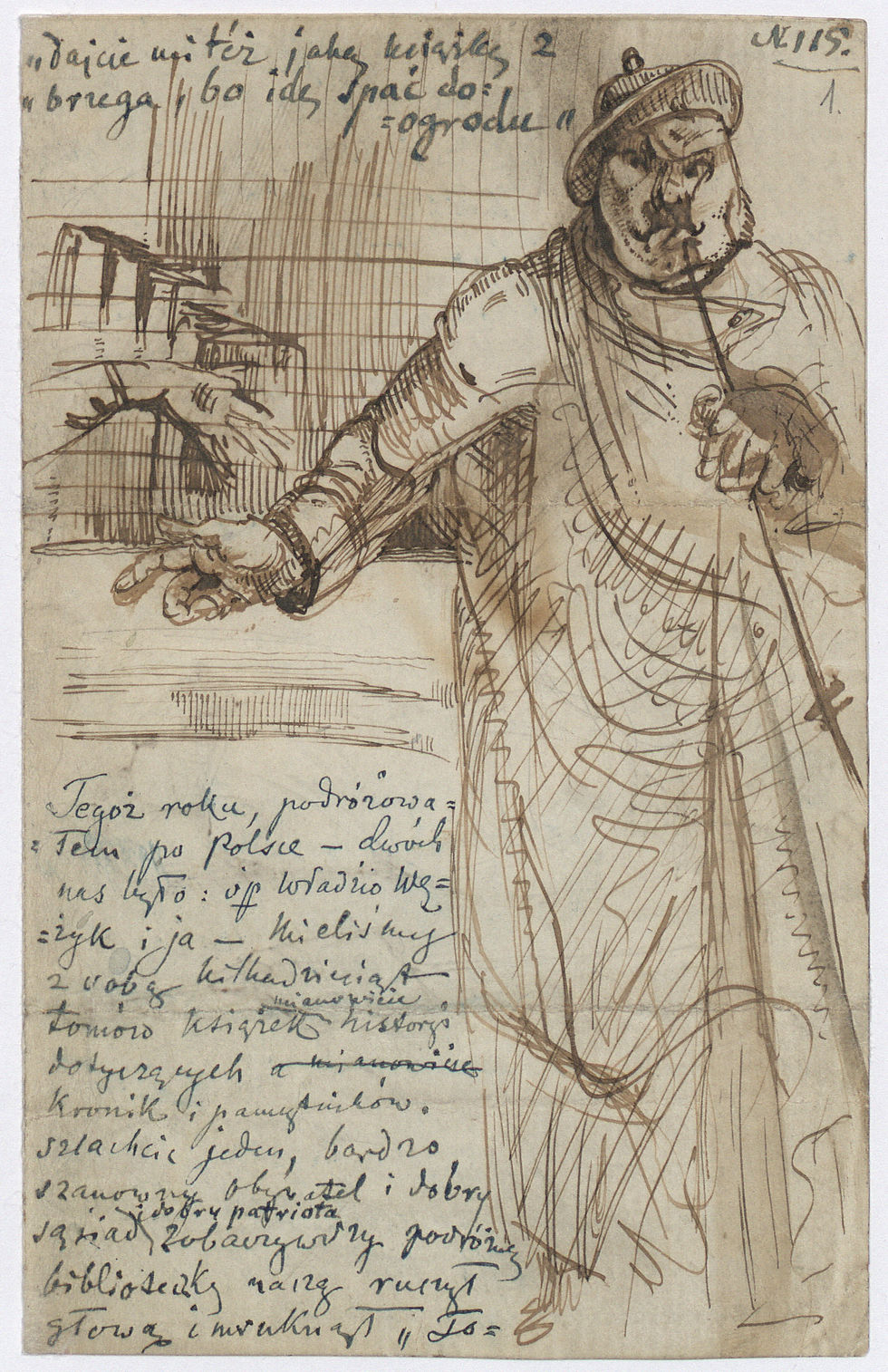Norwid in Classical Concert Music
- Jakub Polaczyk
- Jan 9, 2022
- 4 min read
Updated: Apr 9

In 2021 we were celebrating the 200th anniversary of the Cyprian Kamil Norwid‘s birthday. He is a great artist revered as a playwright, a painter and a poet, who became an icon for many contemporary Polish songwriters and singers. Perhaps the most famous example is Czesław Niemen’s legendary “Bema Pamięci Rapsod,” which transformed Norwid’s poem into an inspired elegy of over 16 minutes, recorded on the Enigmatic album in 1970. Stan Borys, another popular rock-artist, recorded an album “C.K. Norwid – poems,” released by the Polish Radio in 2010. Borys also directed and acted in Tymoteusz Karpowicz’s play Norwid, which was staged by The Norwid Society at the University of Illinois in Chicago in 1983 to commemorate the 100th anniversary of the poet’s passing. Several other artists of the pop and jazz world paid tribute to Norwid as the “rock lyricist,” including Krzysztof Cugowski, Renata Przemyk and Wanda Warska.
Hence, it may seem puzzling why only a few classical musicians chose to set music to Norwid’s words. Although he has been recognized as a great bard of the Polish Romanticism, on par with Mickiewicz and Słowacki, we cannot find any work referring to Norwid’s magnificent and visionary poems or plays by the composers of the late 19th/ early 20th century. It might be that Norwid’s very original use of the language, extraordinary dramatic structure and complex rhythms posed special difficulties to “classical” & Romantic modes of composition.
However, things have changed in the second half of the 20th c., and the passing year of 2021 added two unique works. We heard the first opera Wanda composed by Joanna Wnuk-Nazarowa (b. 1949), with libretto based on the lyrics of C. K. Norwid’s mystery play Wanda. Object in Six Images. Its world premiere on 10 September at the courtyard of the Wawel Royal Castle in Cracow was a great success. The composer commented that this dramatic work took her back to the years of her youth, when she took part in a high school theatrical performance, her first and unforgettable encounter with the passionate art of Norwid. The other larger work was radio-theater composition Eclipse presented during Warsaw Autumn Festival 2021. It was directed by Andrzej Seweryn, with music by the great Polish composer living in Paris, Elżbieta Sikora (b. 1943), and text based on Norwid’s writing. Sikora imagined Norwid alive, her music evoking his presence among us today, as if walking on our streets.
Here are other contemporary concert music that link music and Norwid’s words in interesting and novel ways:
Henryk Mikołaj Górecki (1933-2010): The vocal cycle Blessed Raspberry Songs Op. 43 (1980) includes four compositions for piano and voice. The meditative piece uses Norwid’s text in the simple, non-melismatic way, with music creating the atmosphere and time span by harmonies on the piano and the melodic line very declarative, like recitatives in the opera. (I will never forget the performance of the cycle during Górecki’s Marathon in 2003 in Katowice, with the composer himself playing the piano.) Songs performed by Ewa Guz-Seroka (piano), Urszula Kryger (mezzo-soprano), Jadwiga Rappé (alto), and Robert Gierlach (bass-baritone):
1. Blessed Raspberry Songs
2. Each Morning, When the Shadows Recede
3. Compassion
4.Oh! God…
Andrzej Kurylewicz (1932-2007): Famous for his film music scores, Kurylewicz is also known for several “Norwid songs,” which he composed for his wife, Wanda Warska. But Kurylewicz also wrote a longer symphonic poem-cantata based on Norwid’s poem “In Verona” (1981). His use of many expressive and polistylistic elements is very effective, but the difficult symphonic poem is rarely performed nowadays. Here is the recording by the Symphonic Orchestra and Choir of the Polish Radio conducted by Jerzy Katlewicz (1984):
Krzysztof Knittel (b. 1947): Former director of the Warsaw Autumn Festival composed Pieśni Norwidowe/ Norwid Songs (2001) to be performed by singer Olga Pasiecznik and pianist Janusz Olejniczak during the special “Tribute to Norwid” concert on 24 September 2001 at the Warsaw Castle. This cycle treats Norwid’s texts in a theatrical way rather than as romantic songs, in the closing part even using the voice from the tape. Four songs extend the exploration of the sound of voice and piano, based on C. K. Norwid’s “Prothidion", “Próba”, “Pisma”, and “Marionetki”:
Let me add a personal word. I have often asked myself, Is it possible to compose music to Norwid in a melodic Romantic song contour? Nobody has done that so far. The Romanticism’s song model might not fit this difficult poet. As a young student-composer I tried to have a musical dialogue with Norwid, whose expressive language was always very close to my heart. Back then I composed music to his “Spartakus,” an extended poem that pays tribute to the ancient culture:
In one of my recent works, Earth Poems, I decided to close the cycle with Norwid, choosing the text “An Album.” The piece had its premiere in November 2021, during Chopin & Friends Festival at the Polish Consulate in New York, with Kofi Hayford as a bass singer and me on the piano:
This time I decided to use the English version of the poet’s text. I wanted to show Norwid’s connection with the United States (the poet thought of emigrating to the USA and stayed in New York for over the year, from Feb.. 1853 to April 1854) as well as to make his work more accessible to the American audience. My two ‘Norwid songs’ were written 10 years apart. However, the declarative use of the voice is similar, very extended, surprising in the narrative turns of motion and flow. In both works I aimed to stay true to the Norwid’s sophisticated and complex form. I hope that my music in its own way also pays tribute to the grand master.
Jakub Polaczyk - composer, pianist, pedagogue.

Comentarios